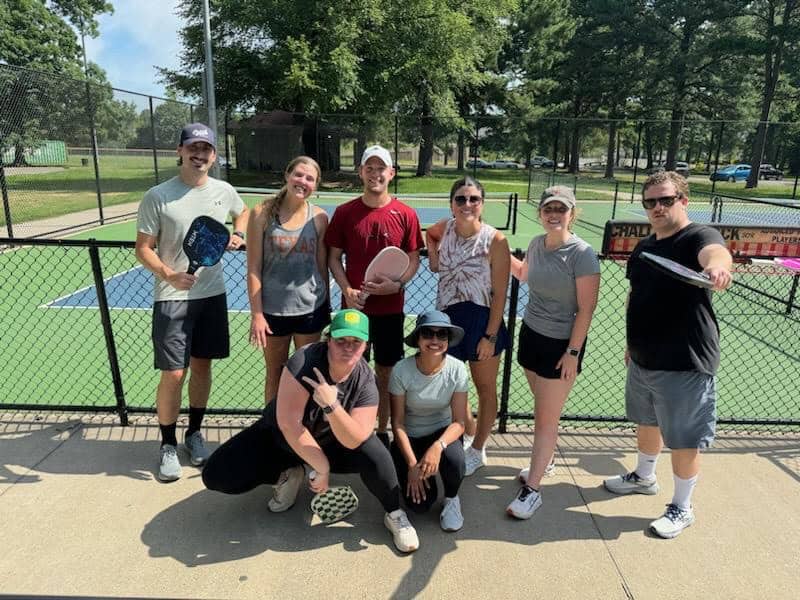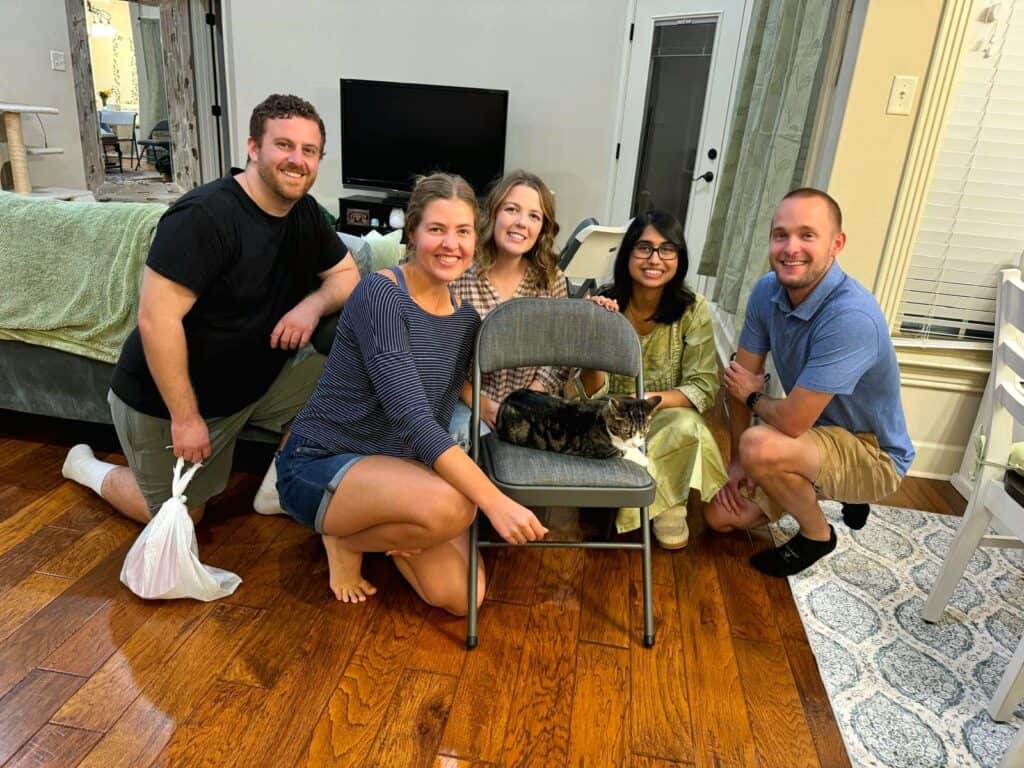A Day in the Life of a First-Year Resident
For our intern year, our rotations are split up between six months of inpatient psychiatry and six months of off service rotations. This way, we can get some experience with learning how to treat the most common day-to-day psychiatric disorders and how to manage the overall health of our patients outside of psychiatric treatment. After all, we are doctors before we are psychiatrists!

Our psychiatry rotations include three months at PRI working on the women’s mental health unit and the substance units in addition to three months working with forensic patients at the Arkansas State Hospital (aka ASH; that’s what I’m doing now)! Our off-service rotations include outpatient neurology, inpatient medicine, outpatient family medicine, and (optionally) some outpatient pediatrics. A typical day at ASH includes taking care of some of the most psychiatrically ill patients in the entire state. You have the wonderful opportunity to learn from both of the attendings, Dr. Wilbanks and Dr. Olson, who both love to teach and engage with the residents and the students who come rotate with us. The patients here all have such interesting stories.
As a resident, it’s important to see the extent to which psychiatric illness can affect our patients; but the great thing about the State Hospital is that we get to see these patients improve over time and improve their quality of life.
My day starts by getting up to go get a workout in at the ESporta next to my apartment. I love getting a good workout in before I head to the hospital because it helps me clear my head, manage my stress, and perform my best on the job. I get to the State Hospital at 8 a.m. to read up on the patients we will round on and to work with the med students on coming up with a plan for the interviews. Then we meet as a team at 8:30 to discuss how all the patients are doing and any updates on their legal status. After that, we get to go and speak with the patients on the unit to see how they’re doing and determine how best to help them.
As a forensic hospital, we get to learn a ton about how psychiatry and law overlap and work together to serve the patients in our state. We also get the incredibly unique opportunity to participate directly in some of the legal proceedings by learning how to testify as an expert witness on the stand.
For lunch, I get the chance to step out and grab something at the UAMS cafeteria and (if I want to treat myself) enjoy some of the local restaurants near the hospital. My favorite so far has been the burgers at Big Orange, but sometimes I’ll head across the street to get a frozen Baja Blast from the Taco Bell since it’s been a little hot this summer! In the afternoons, we get the chance to teach the med students about various topics in psychiatry or learn from lectures from the attendings. This has to be my favorite part of the rotation for a few different reasons. Teaching med students is hard as an intern, but at the State Hospital, we have plenty of time to go in depth into the topics that the students are most interested in each day or week. Additionally, the lectures that we get from the attendings are immeasurably helpful. Since it’s just the residents and the med students, it’s a very close and individualized form of instruction and you get to build some really fulfilling relationships with the attendings that continue to benefit you on other rotations. We typically finish up by about 4:30 p.m. each afternoon and head home.

Being able to leave the hospital while the sun is still out (especially as an intern) is a luxury that Psychiatry gets to enjoy and one that UAMS Psychiatry specifically really seems to recognize the importance of. In the afternoons, I get the chance to hang out with some of my fellow interns. So far, we’ve done everything from playing pickleball, going to trivia downtown and catching some of the new movies in theaters around town. It’s been such a great experience having the time to get to know my fellow interns because it really makes the transition into intern year so much easier. Most recently, one of the interns invited us to her house for a feast that her parents were nice enough to prepare for us! It was such a great experience getting to hang out with everyone and eat some great food! On a typical day after work, you have plenty of time for self-care by enjoying all that Little Rock has to offer or you can go home and enjoy taking some time for yourself with a movie or by cooking yourself a good meal.
On Thursday afternoons, we leave the State Hospital at noon and head over to UAMS to participate in the didactic lunch and lectures. This is another really great opportunity to get to know your fellow interns and learn from some of the other attendings. They pick some of the best places in town to order food from, my favorite being Three Fold dumplings and noodles. Then, we split up by residency class to have our didactic lectures. I think the fact that we split up is a special and unique aspect of our program because it allows you to have smaller groups, which generates more discussion which I find super helpful and rewarding.
As interns, we also take call shifts where we cover the inpatient psych units at UAMS, floor consults, Emergency Department consults and the VA. We typically do one short call shift per week (~3.5 hour shift) and then once a month we take a long call shift on the weekend (~12 hour shift). While they can be intimidating at first, the fact that we do these shifts while hip-to-hip with an upper level makes these some of the most valuable learning experiences in our first year. By working closely with an experienced upper level (all of whom are so knowledgeable, nice, and encouraging), we get the chance to really focus on our learning from each patient experience. The UAMS psych residency team does a fantastic job of making you feel supported throughout these shifts by checking in with you to see how your shifts are going.
Overall, each day as an intern is filled with SO much learning; however, by being a psych intern at UAMS, these days are also filled with SO much support. All the attendings and upper levels do a fantastic job of checking in with you, making sure you’re doing OK, and pushing you to be the best psychiatrist you can be.
